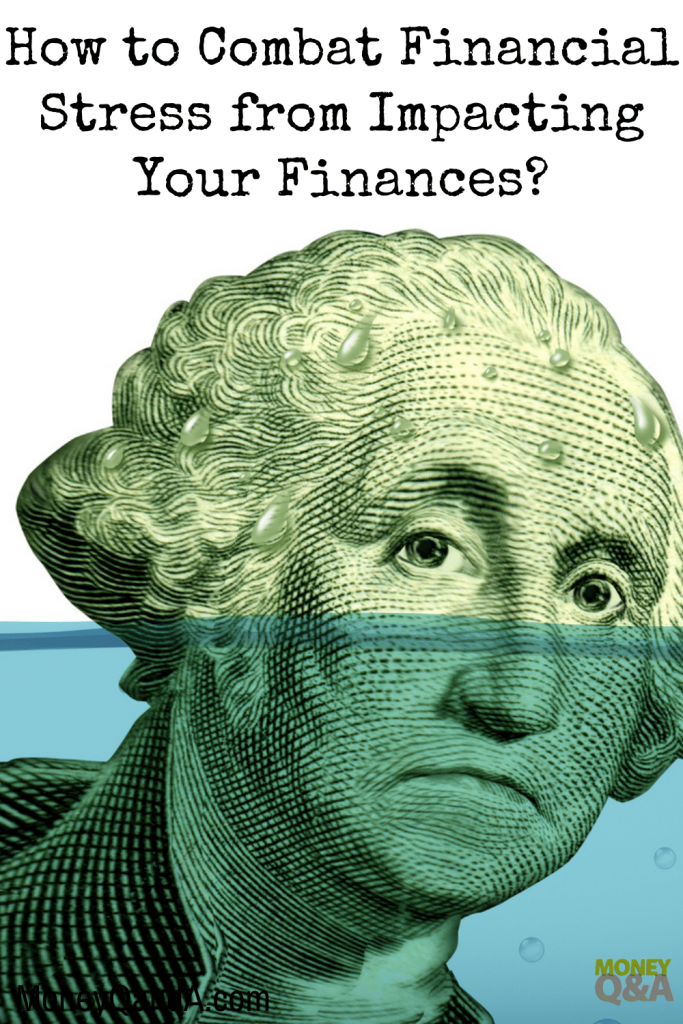
An April 2020 survey released by the National Endowment for Financial Education found that 88% of Americans were reportedly stressed about finances as a result of the Covid-19 pandemic. Of those respondents, 54% said they were stressed about not saving enough money (for emergency savings and/or retirement), 29% were concerned about fluctuating income, and 48% were stressed about paying regular bills like mortgage/rent, utilities and healthcare.
Considering the fact that Covid-19 has impacted almost everyone on Earth in some capacity, it’s understandable if you’re also feeling stressed about money matters lately. Even with the vaccination rollouts, it’ll be months – if not years – before we return to any semblance of “normal” life.
Since uncertainty about the future can create even more stress than we’re already dealing with amidst a global pandemic, it’s important to be mindful of the effects this stress could be having on your personal financial management practices.
While some people have saved quite a bit of money during the pandemic thanks to remote work arrangements, fewer dining out opportunities, and limited traveling, others haven’t fared so well financially due to job loss, reduced business activity, higher healthcare costs, or stress-related behaviors like impulsive online shopping.
If you’ve been feeling stressed out lately and want to get your finances back on track, here are some warning signs to watch out for and strategies for resolving your financial stress.
Constantly Worrying About Money
There’s nothing wrong with occasionally feeling anxious about your financial situation, but if you’re constantly stressing about your budget, savings goals or any other major financial aspects of your life, then it could amplify the negative impacts on your finances if you aren’t careful.
For instance, studies have shown that financial stress tends to have negative impacts on your productivity as an employee; in extreme cases of money-related stress, your job performance could suffer as much as 15-20% in terms of being present at work but unable to optimally function and complete your assigned responsibilities.
If you’re struggling at work, there’s a risk of missing out on valuable opportunities like promotions or performance-based bonuses (not to mention the risk of losing your job due to performance issues as well). To overcome this, check if your employer has an Employee Assistance Program, which offers free and low-cost psychological resources such as confidential counseling.
If you don’t have access to an EAP, then look into alternative mental health resources such as online support groups, meditation exercises, and state-sponsored health and wellness programs, to name a few.
Missing Deadlines
Another problem associated with stress is an inability to consistently meet deadlines. This can be due to a variety of reasons – depression, anxiety, general forgetfulness – but it’s critical to nip this issue in the bud as early as possible to prevent it from negatively impacting your finances.
For example, missing a loan or credit card payment deadline could hurt your credit score, as well as incur late payment penalties and potentially increase your interest rate (for credit cards). If you genuinely don’t have the funds to cover a payment, contact your lender to discuss flexible repayment options. For more information, the Consumer Financial Protection Bureau has a great list of options and resources for borrowers impacted by the coronavirus pandemic.
Impulsive Spending Issues
Another 2020 survey from Credit Karma found that 35% of people had made an impulsive purchase as a result of feeling anxious and stressed during the Covid-19 pandemic. Of those respondents, 45% admitted to impulsive spending at least once per week, while 17% were impulsively stress-buying on a daily basis. The survey also found that 18% of people were spending more now than they were before the pandemic began.
Whether or not a stressful global pandemic is going on, impulsive shopping can have disastrous implications for your overall financial stability. What you might dismiss as “small purchases” can really eat into your budget over time, and impulsive shopping generates so much dopamine for our brains that it can quickly become an addictive behavior that’s difficult to stop.
If you’re dealing with impulsive spending problems due to stress, start by limiting your access to funds. This involves erasing any and all payment information saved in your web browser (e.g., remove credit cards, PayPal, Venmo, Google Pay, Apple Pay, etc.) and reaffirming your commitments to your short- and long-term savings goals (visualizing helps with this). For more drastic cases of compulsive shopping, you may want to cut up your credit cards entirely and/or block access to the most tempting websites.
Stress undoubtedly has a negative impact on personal financial management, regardless of whether that stress is caused by job loss, lifestyle changes, family emergencies, or a global health crisis. It certainly doesn’t feel good to acknowledge that our stress is causing us to make poor decisions, but this is the first step towards resolving the problems and getting our finances back on track for long-term sustainability

